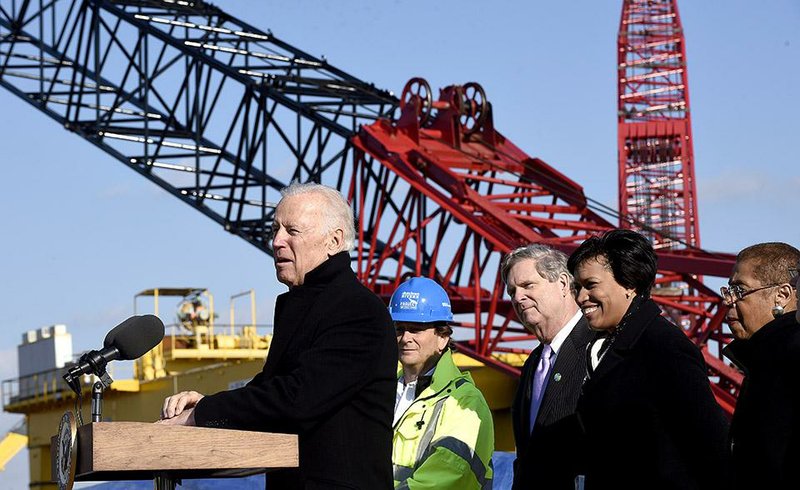WASHINGTON -- The White House unveiled a tax proposal and administrative actions Friday that are aimed at promoting private investment in roads, bridges, water systems and broadband networks.
The plans are an attempt to find ways to finance the vast backlog of U.S. infrastructure projects without using any new federal money.
President Barack Obama has repeatedly said a broad effort to address the nation's infrastructure needs is a potential area of agreement between his administration and the Republican Congress, although deep divisions remain on how to handle such projects.
One proposal that could draw bipartisan backing would create so-called qualified public infrastructure bonds that could be issued to finance projects including airports, roads, mass transit, and water and sewer systems. They would be the first type of municipal bonds available for public-private partnerships and would be exempt from the alternative minimum tax.
The White House did not detail the cost of Obama's bond proposal -- which officials said would be included in the budget he will send to Congress next month -- or how it would be funded.
The Environmental Protection Agency and the Agriculture Department also will use existing federal funds to encourage private investors to finance infrastructure projects, including drinking-water and wastewater systems and rural energy and broadband projects, White House officials said.
On top of those public-private initiatives, Obama's advisers said the president still wanted Congress to increase federal financing for highways, bridges and transit projects along the lines of legislation he proposed last year that would authorize $300 billion for the work over four years.
"Private capital is not a substitute for public investment," the White House said in a fact sheet outlining the plan. "But in the absence of Congress acting on this common-sense proposal, the president will continue to do whatever he can through his own authority to promote American economic growth where there is need or opportunity. And right now, there is a real opportunity to put private capital to work in revitalizing U.S. infrastructure."
The announcements come at the end of a week during which Obama has previewed a number of domestic proposals that will be featured in his State of the Union address Tuesday.
They include new policies on paid family leave, broadband access and cybersecurity. Last week, he outlined a plan to make community college tuition-free for some people.
A Section on 01/17/2015

